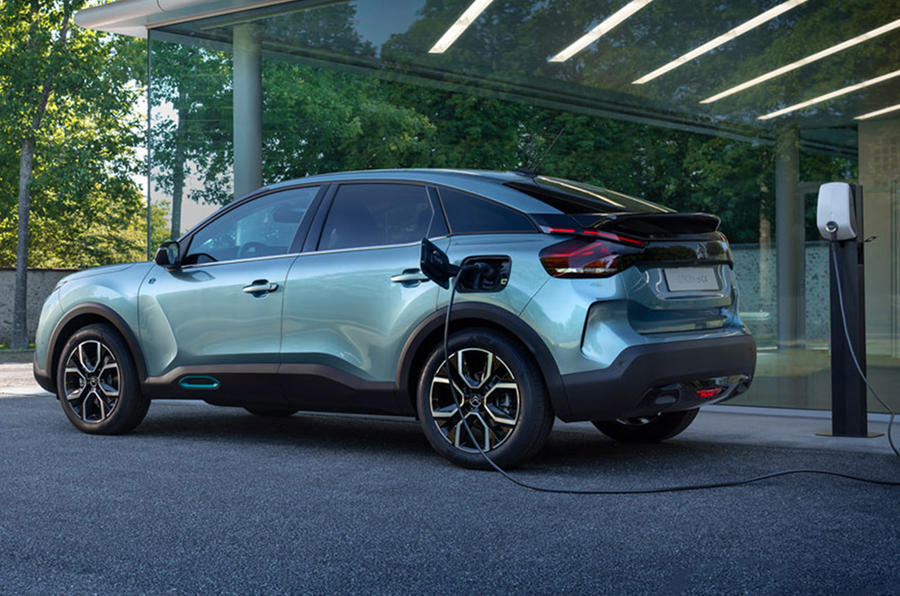Registrations of pure-electric cars have almost doubled in 2020, according to the latest figures from the Society of Motor Manufacturers and Traders (SMMT), while diesel numbers have more than halved.
Despite the coronavirus pandemic, 86,291 EVs were registered between January and November, representing an increase of 37,850 over 2019’s numbers.
The sales increase for electric cars may be due to a combination of changing buyer priorities during the pandemic, increased public awareness of environmental dangers and the need for car companies to register more low-emission models to meet tough emissions targets.
RAC data insight spokesman Rod Dennis said: “As we move beyond the pandemic, 2021 is set to be a critically important year when it comes to understanding the appetite drivers have for ‘going electric’.
“With more electric cars coming on to the market, it will be interesting to see if this rise in sales will be sustained or whether the negative economic outlook has the unfortunate effect of quelling demand.”
As electric car sales have soared, sales of traditional diesel and petrol models have taken a hit. Diesel registrations fell sharply from January to November this year, dropping 58% from 583,488 for the same period in 2019 to a mere 246,389 in 2020.
November was also the first month - aside from this April - in which plug-in hybrid sales eclipsed demand for diesel. A total of 18,062 plug-in electrified vehicles were sold, compared with 15,925 diesel models.
Although the increase in demand for electric cars will surprise many, it was predicted by some industry figures. In June, Citroën boss Vincent Cobée claimed that the Covid-19 situation would accelerate sales of EVs as several major governments, including France's and Germany’s, unveiled incentives to increase car sales of greener models.
Speaking during the launch of Citroën’s e-C4, Cobée said: “We are expecting that the unexpected could happen and I wouldn’t be surprised if the market share of EVs moves towards 20% very, very rapidly.”
The RAC states that since 2010, a total of 185,137 pure-electric cars have been registered for use on the UK’s roads, along with 223,384 plug-in hybrid cars. Expect these numbers to continue to rise, as the UK pushes towards a zero-emissions future.
READ MORE
Official: government to ban new petrol and diesel car sales in 2030
RAC launches EV flat-battery recovery scheme
Citroën boss: major electric car demand likely post-pandemic





Join the debate
Add your comment
Also lets not forget that electric cars require 50% more CO2 to produce then ICE cars....
Of course it is amazing what you can do with statistics! You could equally write a headline for this "Sales of Diesel Cars still outnumber Electrics by three-to-one!"
Electric motors are great for cars, batteries, not so much as yet.
Surprising that anyone at all is still buying diesel. As the reality about diesel emissions, plus the looming phase-out of combustion vehicles, plus an increasing number of low emission zones, combines to hammer the final nails into the coffin of diesel, sales should finally plummet to zero. What's amazing is that buyers haven't already woken up to the inevitable depreciation of these vehicles. Everyone can see that the smart money is now going into EVs and it makes sense to get out of diesel now before values plummet.
The truth is actually that modern diesels still emit less CO2 than petrols and their Nox emissions are now so low that there are no low emission zones that they are prohibited from. For high mileage drivers, diesel is still the best choice of propulsion.
What you are saying is true when the vehicles are tested but does it hold true in real world condintions?
Emissions depend on driving style, the state of the engine, calatytic-converter, particulate-filter, ambient temperature, engine software mode etc etc.
On a cold morning run to the shops, in a not new diesel car, with the calatytic converter and particulate filter not in optimal condition, the engine mode in "warm up" mode and not laboratory slaggish accelaration, research shows that the emissions are shockingly higher than the official numbers.